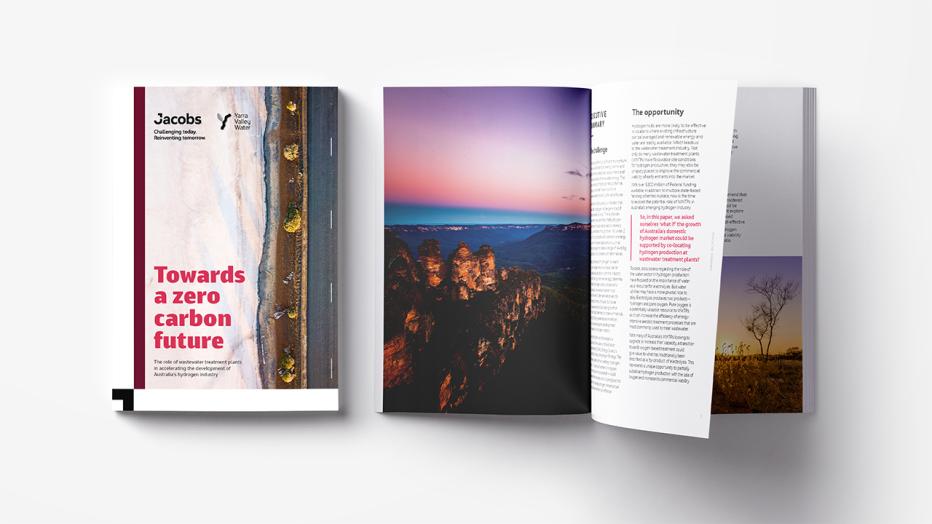
The broad utilization of hydrogen has potential to play an important role in our drive toward a decarbonized, sustainable future. But in Australia, cost remains a major barrier to adoption.
Building on the suggestions made in our original thought leadership paper in 2019, our latest release uses Yarra Valley Water’s Aurora wastewater treatment plant as a case study to explore the relationship between both outputs from electrolysis - hydrogen and pure oxygen. Specifically, the high-level analysis explores whether using oxygen in wastewater treatment processes could create enough savings for the wastewater treatment plant to effectively subsidize the cost of hydrogen and increase its commercial viability.

“Together with Yarra Valley Water, our paper starts a conversation about a possible future role for water utilities in Australia’s hydrogen industry that supports both decarbonization and the commercial readiness of this emerging industry,” says Jacobs’ Senior Vice President, Global Operations Patrick Hill.
The findings from the case study indicated that implementing a type of treatment technology that allows for the efficient use of pure oxygen at the Aurora wastewater treatment plant could deliver net capital and operating cost savings to Yarra Valley Water compared to other types of treatment options tested. At the same time, the guaranteed demand for oxygen at Aurora was instrumental in enabling the co-located hydrogen facility to be commercially viable while selling hydrogen within a competitive price range of AUD$2-6/kg.
Importantly, this result was achieved for ‘sustainable hydrogen’ — produced using recycled water and renewable energy — highlighting the opportunity for decarbonization without compromising the nation’s drinking water resources.
“Embracing renewable energy is a significant focus for our business. It’s been fantastic to partner with Jacobs to explore how the water sector could play a bigger role in developing an effective and commercially viable hydrogen industry in Australia,” shares Yarra Valley Water Managing Director Pat McCafferty.
While the results are specific to the unique circumstances of the Aurora wastewater treatment plant and possible caveats are highlighted, the conservative nature of the analysis suggests the findings are promising and point towards a pivotal role for water utilities in accelerating the development of Australia’s hydrogen industry. The implications for the water industry and the Australian Government’s hydrogen strategy present an exciting opportunity to enable more rapid decarbonization of the world’s most emissions-intensive industries.
At Jacobs, we're challenging today to reinvent tomorrow by solving the world's most critical problems for thriving cities, resilient environments, mission-critical outcomes, operational advancement, scientific discovery and cutting-edge manufacturing, turning abstract ideas into realities that transform the world for good. With $13 billion in revenue and a talent force of more than 55,000, Jacobs provides a full spectrum of professional services including consulting, technical, scientific and project delivery for the government and private sector. Visit jacobs.com and connect with Jacobs on Facebook, Instagram, LinkedIn and Twitter.
Yarra Valley Water is the largest of Melbourne’s three water corporations, servicing the north and east of Melbourne. Their service area covers 4,000 square kilometres and its network consists of around 20,000 kilometres of water and sewer mains. It manages nearly $6 billion worth of infrastructure and assets and employs around 700 people. For more information, visit www.yvw.com.au, and connect with Yarra Valley Water on facebook.com/YVWater and twitter.com/yvwater












































